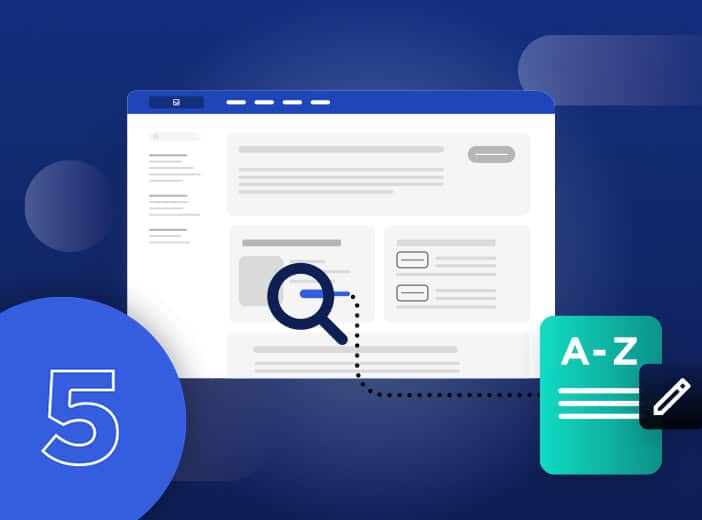How to engage people with your data
Increasing data usage and driving data democratization relies on users engaging with your data. You cannot just build a portal, hope people will come and then know how to use your data. We explain four best practices for increasing engagement, based on international customer experience.

Simply opening your data is not enough to drive real value from it. Instead, it is vital that your data is being found and used by your audiences on an ongoing basis. It has to be the right information, delivered in the right formats, to meet their needs.
So how do you encourage greater usage of your data, both internally and externally? Based on our experience working with our customers on over 2,000 data projects, we’ve seen the following strategies deliver real value.
1. Start by listening to the audiences for your data
On its own data has no value – it is only when it is used that it provides benefits. And usage relies on it being relevant to your audiences. Therefore, before starting your data project invest time in talking to your internal and external stakeholders. Listen to their views and involve them in co-creating your project to increase buy-in and usage.
Communication and collaboration mustn’t stop when your project goes live – user needs change, so keep listening and updating the data you have, how it can be accessed, and how it can be experienced on an ongoing basis.
The perfect example of this strategy delivering results is for UK Power Networks (UKPN). The UK’s largest distribution network and system operator, UKPN wanted to engage its diverse community (which includes local government, housing developers, energy generators, consumers, and academics) when it created its portal.
To do this it ran multiple events to understand their requirements, collecting feedback from nearly 500 attendees. It then used this to shape its portal, inviting stakeholders to join the project as beta users. This all meant that when the portal went live it was already at the heart of a dynamic community, which has continued to grow. Over 5,000 people have now accessed the portal, with over 625,000 API calls since it went fully live in October 2021. Engagement is continuing, with a full program of events aimed at particular groups, such as local government to ensure it continues to meet their needs.

2. Use innovative ways to share data experiences
While data experts will have the knowledge and skills to consume data through API calls or by downloading from portals, other audiences will have different requirements, such as data stories, maps or dashboards. So, look at how you can show the value of your data in ways that are easy to access and fit their particular needs.
Here are some examples of innovation:
- Randwick City Council in Australia has created the world’s first “smart beach.” It is using data to optimize the visitor experience at Coogee beach, including by providing digital aquatic safety boards, improved water and landside safety, traffic and parking management, amenities servicing and mashing up of Council and other open data to present a unified view to the beachgoer.
- The Orléans Metropolitan Area in France has also taken open data outside, with visitors to its gardens able to scan QR codes to find out information about specific plants. The city has also added an interactive map of the Orléans Museum for Biodiversity and the Environment to its open data offering, which allows people to view their areas of interest.
- Cary, North Carolina aims to use data to connect its communities and increase transparency. The town has created a range of data stories on specific topics, using information to inform and explain. These range from stories on the town’s trails and greenways, to the impact of the opioid crisis. All of these aim to bring data to life for users, whatever their interests and technical skills.

3. Promote your data project internally and externally
People will not access your data if they don’t know it exists or that it is relevant to them. That means it is vital to work closely with stakeholders to publicize the overall platform and any new, relevant datasets. This is true both internally and externally, especially if you are creating new data services that can be monetized.
Here are some of the techniques organizations can use to promote their project:
- Coverage in internal and external newsletters
- Full training and support, tailored to individual business needs and use cases
- Running competitions for the best use of data from the portal
- Holding tailored events to explain the benefits to specific audiences
- Organizing hackathons to create a buzz around available datasets
- Creating case studies and entering awards
- Involving the community by signing them up as participants and users
- Speaking at industry events to share best practice
- Giving open data prominence on external and internal websites and intranets
Log Into North Carolina (LINC) is a portal run by the North Carolina Office of State Budget and Management (OSBM). It provides comprehensive economic and demographic data about the US state, covering topics as varied as population, labor force, energy, and agriculture. To promote LINC OSBM carries out regular roadshows and webinars aimed at specific members of the community, from state departments to municipalities.

The City of Geelong in Australia’s Weather Together project recruited volunteers to host weather sensors in their home or workplace. Involving the community provides a real-time picture of temperature and weather across the city, while encouraging people to get involved and access the data in their day-to-day lives.

To achieve its goals around digitization and decarbonization, Schneider Electric launched the Exchange platform: a marketplace of data services for collaboration and networking between players in the energy sector. To help drive adoption, Exchange makes it easy for partners to both access data and to share ideas and concepts through a powerful collaborative cloud platform which hosts a network of solution providers in the energy sector.
4. Make it easy to use and reuse data
Data impacts all of our daily lives, at home and at work. Yet most people are not yet using data effectively to make decisions or understand the world around them.
This is often because data is not available in the right formats for people to understand or is difficult to manipulate by non-experts. Organizations should therefore focus in three areas to increase use:
- Ensure that information on portals is easy to search, has understandable metadata and can be quickly manipulated to build compelling data experiences, such as maps, graphics, and other visualizations.
- Be open and encourage feedback from data consumers. Use this to drive improvements to better meet their needs.
- Break down silos between departments by making data available to all, enabling better collaboration and decision-making.
The OECD estimates that sharing data creates 20-50 times more value than if it is siloed. However, this value will only be created if data is actually being used – following the best practice above will therefore help unleash its power, now and in the future.



